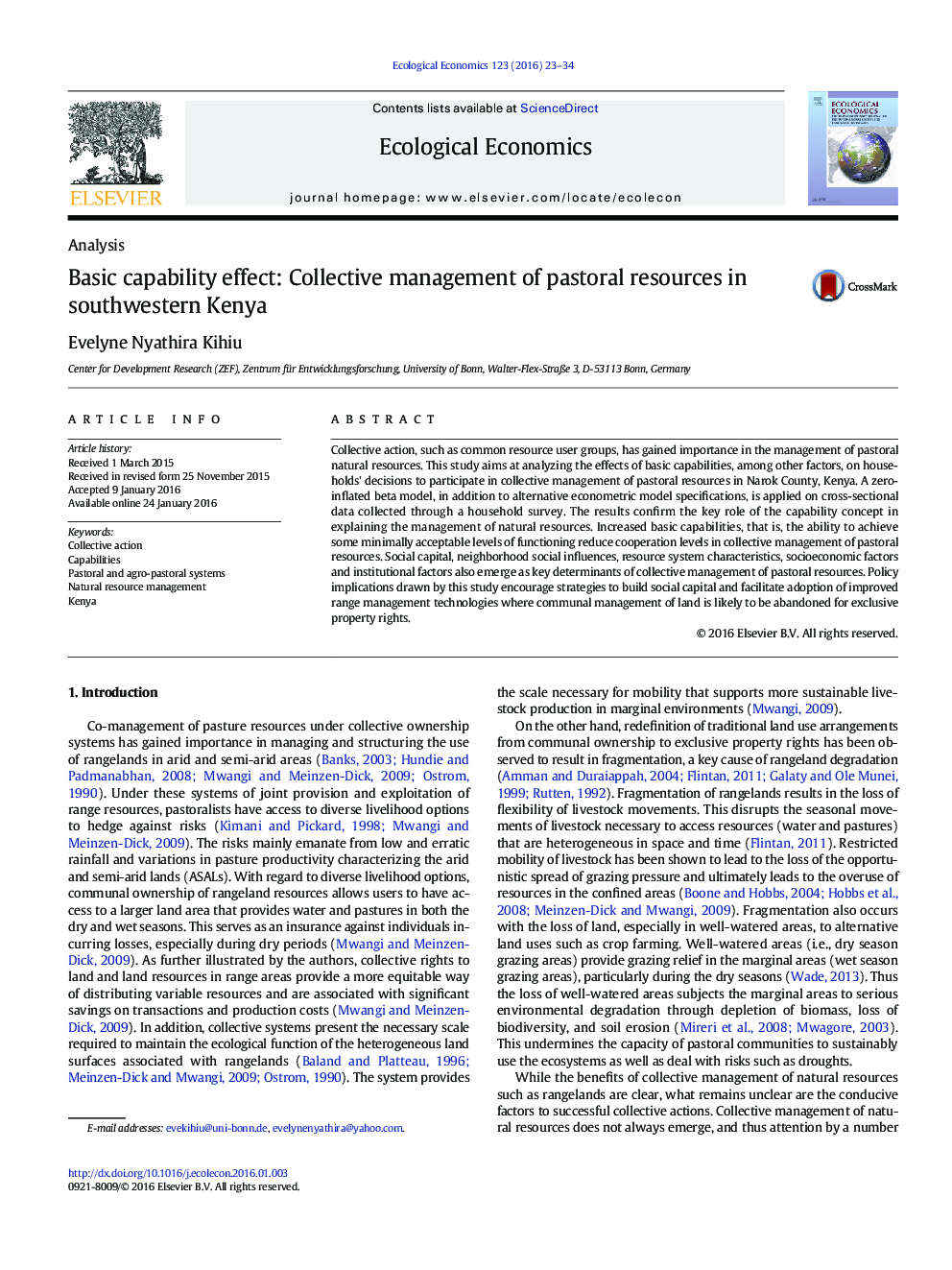| کد مقاله | کد نشریه | سال انتشار | مقاله انگلیسی | نسخه تمام متن |
|---|---|---|---|---|
| 5049166 | 1476356 | 2016 | 12 صفحه PDF | دانلود رایگان |
- Collective action in pastoral resources, such as common resource user groups have social and environmental benefits over exclusive property rights.
- Collective management of natural resources does not always emerge and thus the attention by a number of studies on factors that play a role in the capacity of communities to collectively manage resources in a sustainable manner.
- This study assess the effects of basic capabilities, among other factors, on households' decisions to participate in collective management of pastoral resources in south western Kenya.
- Increased basic capabilities (ability to achieve some minimally acceptable levels of functioning), social capital, socioeconomic factors and resource system characteristics are key factors affecting collective management of the pastoral resources.
- Enhancing social capital is likely to boost cooperation in collective management of the natural resources. The results also highlight the need for policies encouraging adoption of improved range management technologies in areas where collective management of the natural resources is least expected.
Collective action, such as common resource user groups, has gained importance in the management of pastoral natural resources. This study aims at analyzing the effects of basic capabilities, among other factors, on households' decisions to participate in collective management of pastoral resources in Narok County, Kenya. A zero-inflated beta model, in addition to alternative econometric model specifications, is applied on cross-sectional data collected through a household survey. The results confirm the key role of the capability concept in explaining the management of natural resources. Increased basic capabilities, that is, the ability to achieve some minimally acceptable levels of functioning reduce cooperation levels in collective management of pastoral resources. Social capital, neighborhood social influences, resource system characteristics, socioeconomic factors and institutional factors also emerge as key determinants of collective management of pastoral resources. Policy implications drawn by this study encourage strategies to build social capital and facilitate adoption of improved range management technologies where communal management of land is likely to be abandoned for exclusive property rights.
Journal: Ecological Economics - Volume 123, March 2016, Pages 23-34
